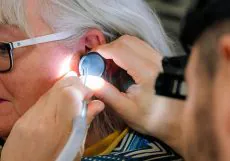What Are Temporary Fillings, and Why is It Used?
0 Views

Consuming sugary foods and drinks or bad oral practices such as no brushing and flossing regularly can result in tooth decay or cavities. There permanently damage can cause:
- Visible holes in your teeth
- Brown or black stains
- Tooth Sensitivity
- Immserable pain
Also, a dental filling can replace a part of damaged teeth and prevent your teeth from further decay. Although fillings are permanent restorative materials, initially, Dentist Office Open On Saturday treats tooth decay with a temporary dental filling. This article will help you understand how long temporary filling lasts, the procedure, etc.
What’s a temporary filling?
A temporary filling is a material your dentist uses to restore a damaged tooth. There is no permanent solution to save your teeth, and you’ll need a permanent solution so that they can replace a permanent filling material.
When are temporary fillings used?
Dentists Open On Weekends uses temporary fillings material for specific conditions. This treatment of putting a temporary filling can be quicker than putting a permanent filling. So, suppose you have a cavity that causes immense sensitivity and severe pain. In that case, you’ll receive a temporary filling as an emergency treatment.
Temporary cap for dental crowns
Your dentist might also put a temporary crown if a cavity is giant because the crown can protect your teeth until the crown is ready.
Temporary seal after a root canal
If a badly decayed tooth also requires a root canal treatment to remove bacteria from the tooth, the dentist saves it. A temporary filling can seal the roots or holes in teeth until further root canal sitting happens because it keeps food and bacteria from attacking the teeth again.
After the root canal treatment area heals, your dentist replaces the temporary filling with a permanent filling material.
Temporary medicated filling to settle sensitive nerves
An emergency dentist may put a temporary filling if a tooth is sensitive to hot and cold water or food. This will help settle the nerves and help the healing process before placing a permanent filling.
After this, your dentist reevaluates the tooth at a later appointment to ensure there will be no pain and you don’t need further treatment, like a root canal.
What are the types of temporary filling material?
Since a temporary filling doesn’t last long, it’s made of softer material that’s easier to remove. Some materials may harden with saliva; here are some material items that are used as temporary filling material.
- Zinc oxide eugenol or zinc phosphate cement
- Cavit
- Glass ionomers
Intermediate restorative materials
Permanent fillings often blend into the natural color of a tooth. Temporary filling, on the other hand, has a different color than the natural white color. This allows your dentist to easily locate the temporary filling while replacing it with a permanent color. A temporary might be bright white, grey, or white with a blue or pinking hue.
Conclusion
If you have pain and sensation due to a minor chipped or knocked tooth, you should consider visiting emergency dental care for a thorough checkup and treatment.
Related Posts

What Are the Benefits of Visiting an Ear Suction Clinic for Ear Wax Microsuction?
Andrin Andrin / January 10, 2025





